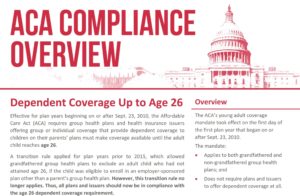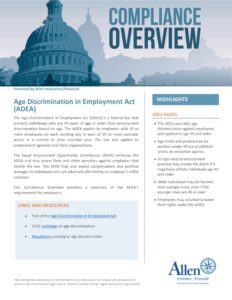For many Americans, social security benefits make up a significant portion of retirement income. When it comes to how much you will receive, you may be surprised to learn that you have a choice in the matter—and timing is everything. The longer you wait to claim your benefits, the larger your monthly payment will be, so when you start can determine whether you’ll have sufficient funds to achieve your retirement goals.
Here are considerations to keep in mind as you think about your social security choices.
When Are You Eligible?
Based on the year you were born, the Social Security Administration (SSA) has determined your full retirement age (FRA)—in other words, the normal retirement age at which you become eligible to receive full social security benefits. If you were born before 1955, you’ve already reached your full retirement age (see Figure 1). If you were born after 1960, you’ll reach your FRA at age 67.
Figure 1. Full Retirement Age (FRA)
| If you were born in: |
Your FRA is: |
| 1937 or earlier |
65 |
| 1938 |
65 and 2 months |
| 1939 |
65 and 4 months |
| 1940 |
65 and 6 months |
| 1941 |
65 and 8 months |
| 1942 |
65 and 10 months |
| 1943–1954 |
66 |
| 1955 |
66 and 2 months |
| 1956 |
66 and 4 months |
| 1957 |
66 and 6 months |
| 1958 |
66 and 8 months |
| 1959 |
66 and 10 months |
| 1960 or later |
67 |
The Early Bird Gets . . . Less
Although your FRA serves as the baseline, you can claim your social security benefits at an earlier age. Keep in mind, though, that taking your benefits early will permanently reduce the amount you receive.
Let’s say your FRA is 66 and your monthly benefit amount is $1,000. If you decide to take benefits at age 62, your monthly benefit will be permanently reduced by 25 percent. That might be a hefty sum to leave on the table, so remember that you have up to 12 months to withdraw your application for benefits if you change your mind.
Good Things Come to Those Who Wait
If you don’t need the cash when you reach your FRA, you can opt to delay your claim—and the SSA offers an economic incentive to do that. Should you decide to wait until after you’ve passed your FRA, the SSA compensates you for allowing those funds to stay in its reserves by guaranteeing an 8 percent increase in benefits for each year you delay, up until age 70. So, if you wait until 70 to claim benefits, your payment will be 76 percent more than what you would have received if you claimed early at 62. If you’re in a position to do so, it literally pays to wait.
Remember, though, that the maximum benefit amount you can receive tops off at age 70, so there’s no financial motivation to delay your claim past then.
Deciding the Right Time for You
Claiming your benefits as soon as you reach your FRA shouldn’t be a given—nor should holding out longer for a bigger benefit. The right timing depends on your specific circumstances, and there’s a lot to consider.
Life expectancy. Longer life expectancies are a large factor in determining the best claiming strategy, so a break-even analysis—the age when your cumulative benefits will even out—can provide helpful insight. Handy life expectancy calculators and benefits calculators are available to help you estimate your benefits based on the age you want to make your claim.
Your spouse. Married couples should consider various strategies for maxing out benefits. If you’re the primary earner, you’ve been married at least one year, and your spouse is at least 62, your spouse may qualify for a spousal benefit of up to 50 percent of your FRA benefit when you make your claim. Although your dependent spouse receiving a benefit won’t affect the amount of your benefit, keep in mind that if you make an early claim, your spouse’s benefit will also be reduced. The flip side is, if you wait until age 70, you maximize benefits for both of you—and potentially the survivor benefit for your spouse.
If you have two incomes, for example, depending on your benefits estimates, you might consider making your claims at different times. It may make sense for the lower earner to take benefits first when they reach their FRA, and the higher earner to wait until age 70 because their increases will amount to more over time. Depending on life expectancy, this approach could also mean a higher survivor benefit for the lower earner should the higher earner pass away first. Note, however, that your spouse’s benefits will be permanently reduced if they apply before their FRA. (There is an exception if they are caring for a dependent child younger than 16 who has a disability, making them eligible for dependent benefits.) For dual earners born before 1954, you can opt to apply for only the spouse benefit and delay taking your own benefit until a later date.
If you and your spouse have similar lifetime earnings, each of you might want to wait until age 70 if it’s financially viable. This positions both of you to receive the maximum amount and ensures that one of you receives the highest possible survivor benefit after the other passes away.
Tax implications. Because some of your social security benefits may be taxable, depending on your income, some people may factor the tax impact of their claiming strategy into their decision-making process.
Keep in mind, if you or your spouse worked at a job at which you didn’t pay into social security because you were earning a pension, your retirement and your spousal/survivor benefits may be affected by the Windfall Elimination Provision and Government Pension Offset. (This is common for teachers and government employees.)
The Math Is Personal
Depending on your specific financial situation, deciding when to claim your social security benefits may have a significant impact on your retirement goals. Time may be on your side if you’re looking to maximize your benefits, but the choice can be complicated; it depends on your health, family circumstances, and overall financial wellness. We invite you to talk with us about the various ways we can support your retirement goals. For more detailed information about benefits, call the SSA at 800.772.1213 or visit www.ssa.gov.
This material has been provided for general informational purposes only and does not constitute either tax or legal advice. Although we go to great lengths to make sure our information is accurate and useful, we recommend you consult a tax preparer, professional tax advisor, or lawyer.








